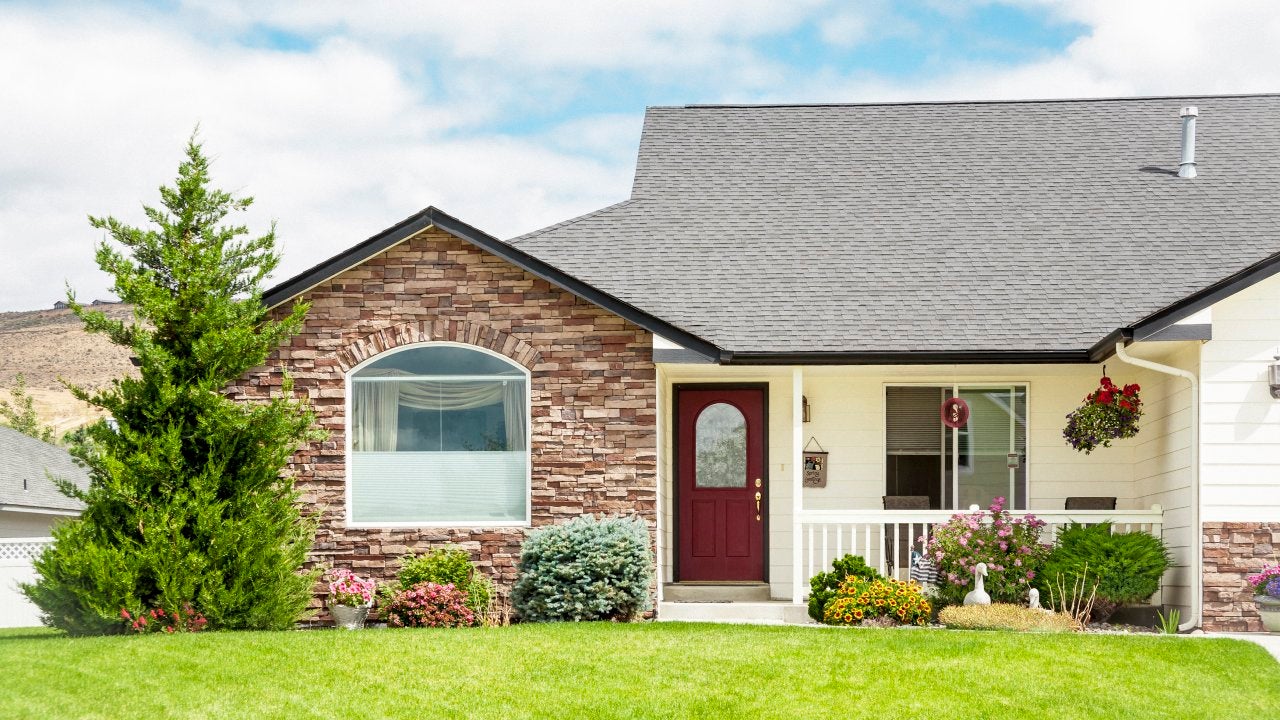How much does it cost to sell a house?

Key takeaways
- Typical home-selling costs can include agent commissions, closing costs, paying off the mortgage and more.
- Don’t forget to factor in the costs of any repairs, improvements or staging you do to get the house market-ready.
- The overall cost can vary widely depending on what state you’re in and the home’s final sale price.
If you’re thinking about selling your house, you’re likely also thinking about how much money you’ll make from the sale. However, you don’t get to keep all the cash when you sell your most valuable asset — some of it goes toward a variety of selling-related expenses.
But how much does it cost to sell a house, exactly? The answer depends on the home’s sale price, where you’re located and what you’ve negotiated with the buyer. Your costs can include real estate agent and attorney fees, title-related fees, taxes and all the other little administrative expenses that go into sealing a deal. Being prepared can help ensure you don’t get an unpleasant surprise at the closing table.
Costs of selling a home
Here are some of the typical costs home sellers can expect:
Agent commissions
If you work with a real estate agent, your agent’s commission will likely be the biggest fee you pay. A listing agent’s fee is typically somewhere between 2.5 and 3 percent of the home’s sale price. So, if you sell your house for $400,000, say, you could end up paying your agent $12,000 in commission. However, you may be able to negotiate a lower commission, especially if the sale price is relatively high.
While sellers traditionally paid the fees for both agents involved in a transaction, that’s no longer the case. Today, who pays for what is negotiated upfront. A buyer may ask you to cover the cost of their agent’s commission, and many sellers do agree, in the interest of moving the transaction along or to sweeten the deal. But it’s not mandatory.
Closing costs
In a real estate transaction, many closing costs are the buyer’s responsibility. But there are closing costs for sellers as well. Some of the most common include title insurance and transfer taxes. You may also pay fees for things like escrow accounts and wire transfers. Additionally, if you have hired a real estate attorney, the legal fees will be due at closing.
Don’t be surprised if you are asked to foot the bill for some of the buyer’s costs, too, especially as the market shifts and buyers gain more traction. You aren’t required to agree, but this is a normal part of negotiations.
Mortgage payoff
Your existing mortgage doesn’t magically disappear when you transfer ownership of the property: You have to pay off the remaining balance before the sale can be finalized. There may be prorated accrued interest added to the total balance, and if your mortgage carries a prepayment penalty, that could be an additional fee. (Check your loan documents or contact your lender to find out.)
Moving costs
Don’t forget that, when you sell your place, you’ll have to move all your stuff to your next place. Paying for pros to help with a local move will set you back anywhere from $882 to $2,567, according to HomeAdvisor, with the average price being $1,711. And if you’re moving long-distance, that price tag can be a lot higher.
Taxes
Here are three common tax implications to consider:
- Property taxes: You may need to pay a prorated share of property tax up to the closing date, with the money placed in escrow. However, property taxes are often paid in advance, so if you already paid them past your closing date, you might be in for a partial rebate.
- Transfer taxes: Many states levy a real estate transfer tax, which is a tax on transferring the property’s ownership. Amounts vary based on where you live, but they’re typically a percentage of the sale price (usually less than 1 percent).
- Capital gains taxes: If you make a sizable profit on your home sale, you may trigger the federal capital gains tax. It depends on the dollar amount of the profit, whether you file on your own or jointly with your spouse, how long you lived there and whether it was your primary residence.
Optional fees when selling a home
While some expenses are mandatory, like taxes, others are optional. Here are some things you might choose to do to improve your home’s appeal before you list it, all of which will incur extra expense.
Home improvements
Before you sell, you might be tempted to make some renovations in the hopes that it will increase your home’s value. Consult your real estate agent first about whether the cost will be worth it.
“One of the most common mistakes I see from sellers is spending money on the wrong improvements before getting an agent involved,” says Charly Marggraf, a Realtor with Compass in Minnesota. “Often, a seller will hold certain improvements in a higher regard than the general buying public. If they are making improvements in order to sell, they definitely need to have a conversation with a professional before they spend their money.”
Home inspection
In addition to talking with your agent, it can be helpful to consult a professional home inspector — especially for an older home. A pre-listing inspection will likely cost a few hundred dollars, but it will fill you in on any major problems before a potential buyer sees them. For example, if a home inspector finds a leak in your roof, you can proactively address the problem and remove any possibility of a buyer asking you to lower your price because of it.
Curb appeal and staging
In real estate, a lot of buyers do judge a book by its cover. That means your home’s curb appeal is essential — even small, affordable projects, like repainting the front door or adding a few flowerpots, can make a difference.
You might also consider staging the interior of your home to make it more welcoming. The cost to stage a home ranges widely, depending on the amount of work to be done, but an appealingly staged home can make a meaningful difference to buyers.
Concessions
Agreeing to seller concessions can also eat into your profits. These might involve paying for a portion of the buyer’s closing costs, or they could be related to something discovered in the buyer’s home inspection — the cost of a new air conditioning unit, for example, if the current AC is on its last legs. This kind of negotiation is not unusual in a real estate transaction: In fact, according to Redfin data, more than 44 percent of home sellers offered concessions in the first quarter of 2025.
Cost to sell a house: A rundown
To give you an idea of how this breaks down, let’s look at an example. Say you purchased a property several years ago for $350,000. You made a down payment of 10 percent, or $35,000, so your initial loan was for $315,000. Since then, you’ve managed to pay down the balance to $290,000. In the meantime, thanks to a surging real estate market, the property will sell for $450,000. How much will really go into your bank account?
Common transaction costs
| Real estate commissions | $27,000 (assuming a full 6 percent of purchase price, with you paying both agents) |
| Property taxes | Depends on location |
| Transfer taxes | Depends on location |
| Title insurance | $4,500 (assuming 1 percent of purchase price) |
| Attorney fees | $1,000 (varies) |
| Escrow fee | $2,250 (assuming 0.5 percent) |
| Utilities | $455.06 (combined monthly average for electricity, natural gas, water and sewer, according to move.org) |
| Moving costs | $1,711 (average cost for a local move, according to HomeAdvisor) |
| Mortgage payoff | $290,000 |
| TOTAL | $326,916.06 |
Common optional costs
| Seller concessions | $6,750 (1.5 percent of purchase price) |
| Pre-listing home inspection | $350 |
| Home warranty | $1,049 (varies widely) |
| Home improvements | $5,000 (varies widely) |
| Home staging | $1,844 (varies widely) |
| Repairs | $3,500 (varies widely) |
| TOTAL | $18,493 |
In this scenario, your total costs might range from around $326,779 to $345,274. That leaves you with net proceeds from your $450,000 sale ranging from $104,590 to $123,083. Either way, it’s a nice payday that you can put toward a down payment on your next place.
Comparing costs in different states
Your location plays a major role in how much it costs to sell your house. As an example, let’s compare some of the costs of selling a home in California versus Texas.
| In California | In Texas | |
| Median home sale price (based on May 2025 Redfin data) | $860,300 | $351,800 |
| Average real estate commission rate | 4.99% of purchase price | 5.76% of purchase price |
| Commissions on median-priced home | $42,928 | $20,263 |
| Average property tax rate | 0.69% | 1.38% |
| Transfer taxes | $1.10 per $1,000 of the sale price, plus varying county and city transfer taxes | None |
| Escrow fee | $1,967 | $350 to $700 |
| Utilities (on average, based on Move.org data) | $572 | $571 |
Reducing the cost of selling a house
If you’re hoping to lower your costs, here are a few options:
- Sell it as-is: When you sell your house as-is, you’re telling prospective buyers that you will not pay for any repairs or updates. This saves you money — but as-is listings can turn off some buyers.
- Sell it yourself: The “for sale by owner” route eliminates the commission fee for a listing agent, so you’ll save up to 3 percent. You may still need to pay the buyer’s agent’s fee, though, and be ready to do a lot of work.
- Sell it with a discount service: Some agents will work for a lower-than-usual commission, or for a flat fee rather than a percentage of the sale price.
- Sell to an iBuyer or cash homebuyer: These companies move fast, letting you speed to the closing table, and they typically buy in as-is condition, meaning you won’t have to spend on repairs or staging. But, while you’ll get your money quickly, you aren’t likely to get as much as you would with a traditional market sale.
Next steps
Now that you have an idea of how much it costs to sell a house, it’s time to find a local agent who knows your market well and can help guide you to a successful — and lucrative — sale. Set up interviews with several candidates to get a sense of their marketing and sales strategy, and to find someone you trust and feel comfortable with.
FAQs
Why we ask for feedback Your feedback helps us improve our content and services. It takes less than a minute to complete.
Your responses are anonymous and will only be used for improving our website.
You may also like

Price per square foot: How and why to use it

Buying a house under an LLC: Is it a good idea?

How much money do you keep from a home sale?



